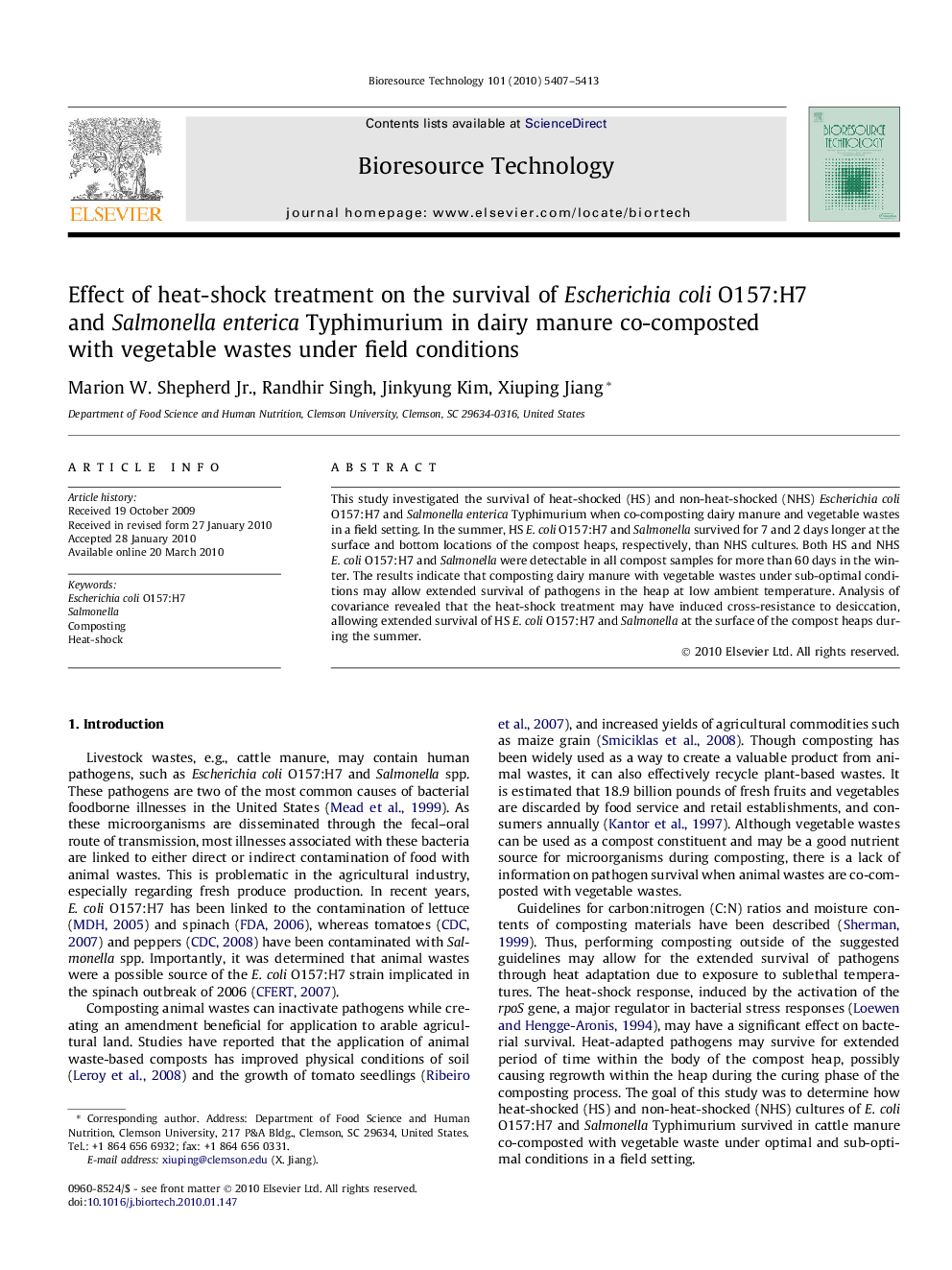| Article ID | Journal | Published Year | Pages | File Type |
|---|---|---|---|---|
| 682970 | Bioresource Technology | 2010 | 7 Pages |
Abstract
This study investigated the survival of heat-shocked (HS) and non-heat-shocked (NHS) Escherichia coli O157:H7 and Salmonellaenterica Typhimurium when co-composting dairy manure and vegetable wastes in a field setting. In the summer, HS E. coli O157:H7 and Salmonella survived for 7 and 2Â days longer at the surface and bottom locations of the compost heaps, respectively, than NHS cultures. Both HS and NHS E. coli O157:H7 and Salmonella were detectable in all compost samples for more than 60Â days in the winter. The results indicate that composting dairy manure with vegetable wastes under sub-optimal conditions may allow extended survival of pathogens in the heap at low ambient temperature. Analysis of covariance revealed that the heat-shock treatment may have induced cross-resistance to desiccation, allowing extended survival of HS E. coli O157:H7 and Salmonella at the surface of the compost heaps during the summer.
Related Topics
Physical Sciences and Engineering
Chemical Engineering
Process Chemistry and Technology
Authors
Marion W. Jr., Randhir Singh, Jinkyung Kim, Xiuping Jiang,
